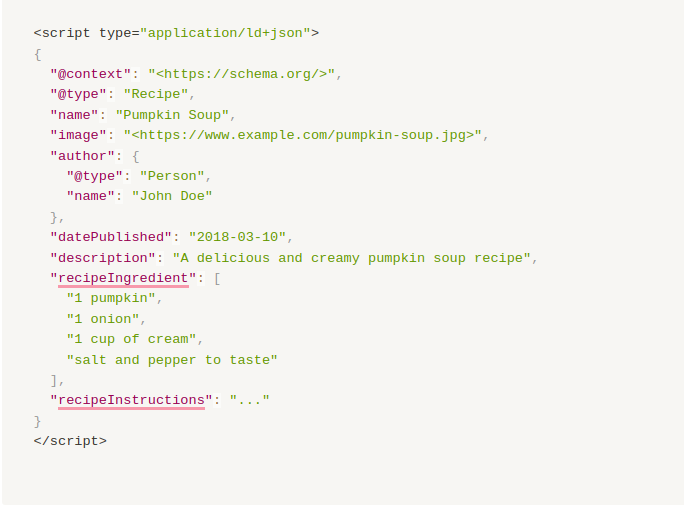JSON LD
JSON-LD stands for JavaScript Object Notation for Linked Data. It is a lightweight linked data format used to serialize data in a way that is both human-readable and machine-readable. JSON-LD is a method of expressing structured data using the JSON format.
JSON-LD is a method of adding semantic meaning to data expressed in JSON format. It encodes data in a way that is easily consumable by search engines, web crawlers, and other software applications.
JSON-LD is specifically designed to be easy to use and understand for both humans and machines.
Advantages of using JSON-LD
There are several advantages of using JSON-LD:
- Increased visibility: Using JSON-LD markup can enhance your website's visibility in search engine results pages (SERP).
- Improved accuracy: JSON-LD is a machine-readable format that reduces the likelihood of errors compared to other formats.
- Improved user experience: JSON-LD can provide additional context to search engines, resulting in a better user experience.
What is the difference between JSON and JSON-LD?
JSON is a really useful format for exchanging data between web applications. JSON-LD is a related format that focuses on encoding linked data on the web.
It's great because it provides a standard way to express context and semantics for data, which makes it easier to integrate and share data across different applications and domains.
Plus, JSON-LD is designed to be easy for humans to read and write.
So, to sum it up, JSON is used for data exchange, while JSON-LD is used for encoding linked data on the web with context and semantics, which makes it easier to integrate and share data.
How to Use JSON-LD
To use JSON-LD, add a script tag to the head section of your HTML document. The script tag should contain the JSON-LD markup that defines the structured data.
You can add the markup manually or generate it using tools like Google's Structured Data Markup Helper.
Here is an example of how JSON-LD can be used to define structured data for a recipe:
Conclusion
JSON-LD is a powerful tool for adding structured data to your website. It is easy to use and provides several advantages, including increased visibility, improved accuracy, and a better user experience.
By using JSON-LD, you can ensure that your website is easily discoverable by search engines and provides users with the information they need.

